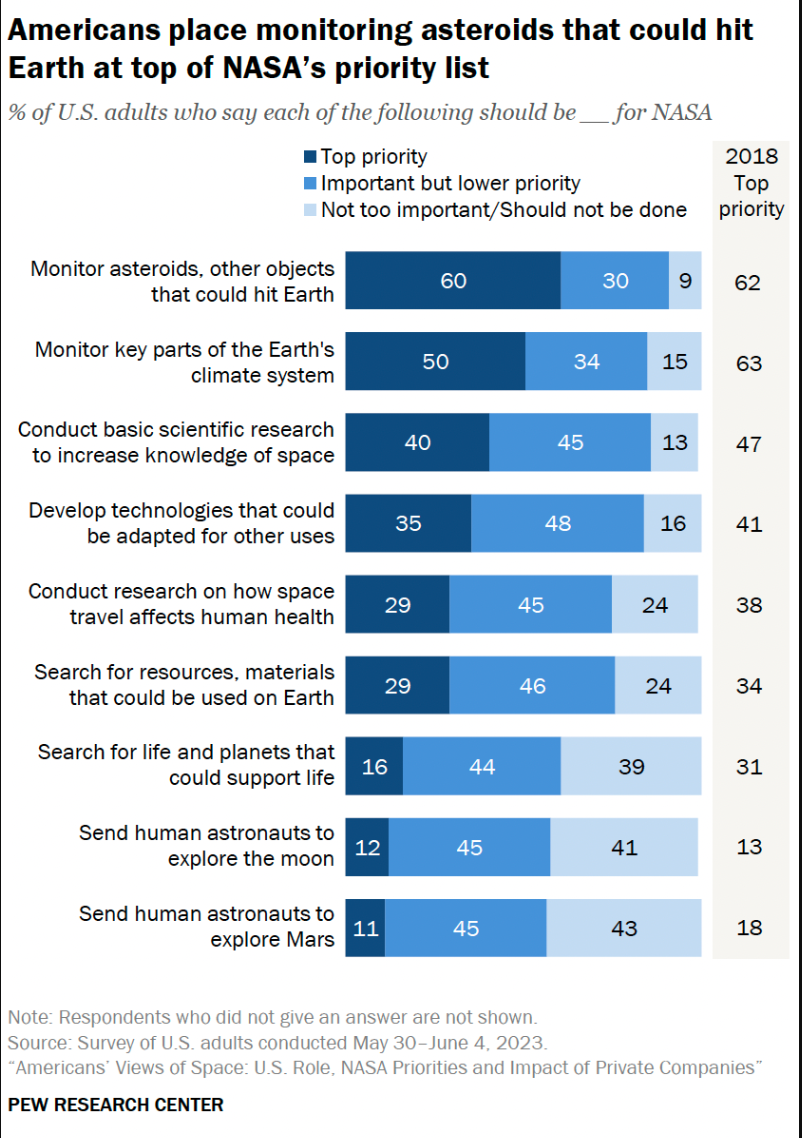The majority of Americans think it is “essential” that the U.S. remain a global leader in space, but that private markets won’t ensure enough progress on their own, according to new polling data from Pew Research Center.
Pew asked more than 10,000 American adults about their attitudes toward commercial space, NASA, the global space race and the outlook on space over the next 50 years. The poll comes at a time of major transformation in the space industry: rocket launches are now commonplace, space tourism is getting on its feet and NASA’s Artemis program is advancing toward its second mission.
Notably, few Americans (just 12%) said sending astronauts to the moon or Mars should be among NASA’s top priorities. Instead, 60% said one of the top priorities should be asteroid monitoring, and five-in-10 said NASA should focus on monitoring Earth’s climate. This stands in sharp contrast to how Congress intends to allocate the space agency’s funding for the next fiscal year, with lawmakers actually looking to increase the amount of funding earmarked for Artemis and related programs, while putting science missions on the chopping block.
Most Americans — 65% — maintain that NASA should play a key role in space exploration, even as private companies play a larger role in the overall space ecosystem. This view is virtually unchanged since Pew last posed the question in 2018.

Image Credits: Pew Research Center (opens in a new window)
Even still, Americans’ views on private space companies are overall positive, though many respondents were unfamiliar with them. For example, in the four areas Pew asked about — building rockets and spacecraft; making important contributions to space exploration; opening up space travel to more people; and limiting space debris — 40-50% of respondents said they were not sure.
Of those that said they were very familiar — two-in-10 respondents said they had heard a lot about private space companies — they reported being especially positive in their evaluations of the companies.
In other areas, particularly those concerning the shape of the space industry 50 years out, Americans mostly diverge. For example, while 55% of Americans predict space tourism will be routine by the year 2073, 44% disagree. Similarly, 26% of respondents said private space companies are doing a mostly bad job at limiting orbital debris, while an almost equal amount, 21%, say they are doing a mostly good job. (53% responded as not sure.)
